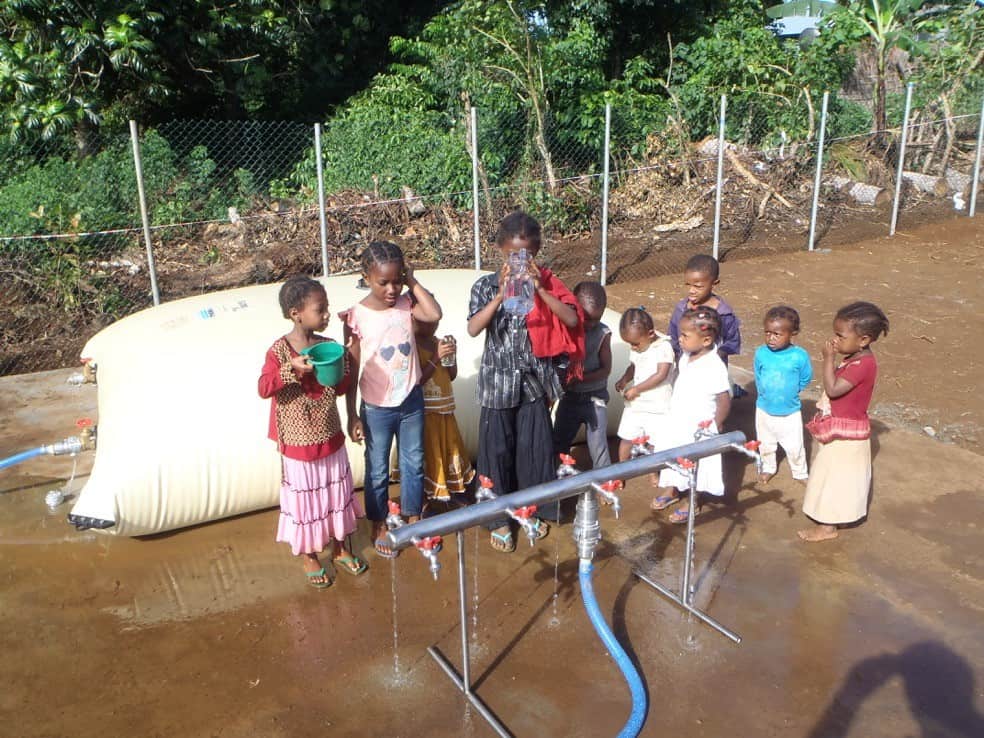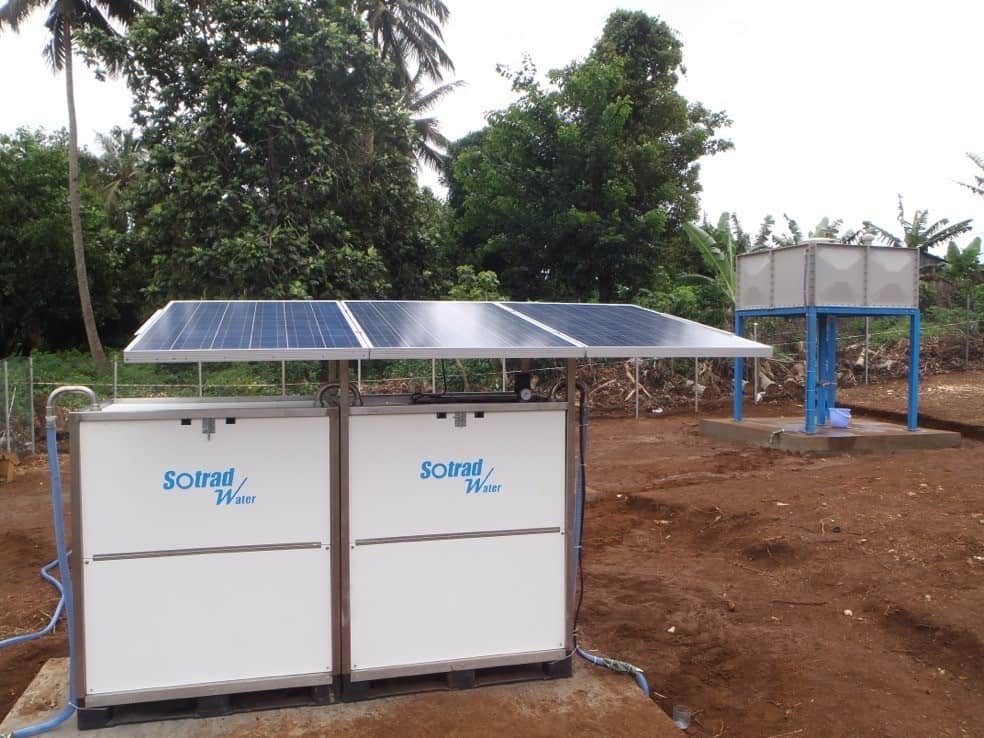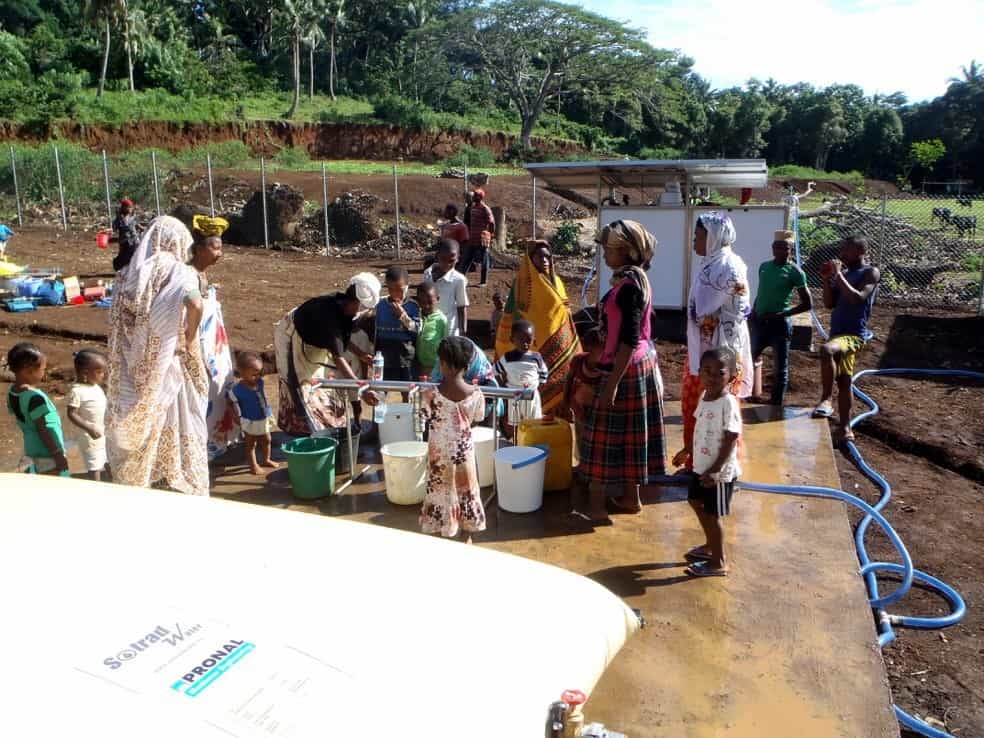Waterco solutions help African villagers drink safely
Human beings need water to survive. In fact, we can only survive three to five days without it. Sub-Saharan Africa has the largest number of water stressed countries on the planet, with 300 million of its 800 million strong population struggling to stay hydrated. Thirst can drive people to turn to unsafe water resources, which contributes to the spread of diseases such as typhoid, cholera, dysentery and diarrhea.
Fortunately, organisations such as Sotrad Water work to alleviate the water shortage in rural African communities through projects that aim to improve water quality. Sotrad develops, manufactures and commercialises water treatment equipment that can produce between 1m3 and 100m3 of clean water per hour from fresh surface water or shallow wells. It was perhaps fitting that the solution came from the world’s driest continent – Australia – in the form of Waterco.
Dedicated to clean water supply
Sotrad Water aims to supply safe drinking water in a sustainable and cost efficient way to communities in 20 countries around the world, and obviously filtration is a vital component of the solution.
To meet requirements for several projects throughout Africa, Waterco provided T400 16” thermoplastic sand filters.
The clean water project for which Waterco provided the filters is an ongoing effort, but it started with 36 villages in Mozambique, two villages of about 800 people each on the Comoro Islands, as well as one village each in Ouganda and Ghana. Each village received one treatment unit and associated equipment.
Sotrad Water International Development manager Raoul Antoine said the remote nature of the villages where Waterco’s filters were used presented several challenges. “Rural communities in Africa often don’t have an easy access to a safe source of water or to electricity,” he said. “Sotrad needed to come up with a robust and affordable system that pumped water from the available sources such as streams, open wells, boreholes or lakes. The system had to produce enough clean water for an entire village. It needed to be able to eliminate all the pathogens present in the raw water, use limited amounts of chemicals, store the treated water and distribute it to the end users.”
No power, no problem
The remote locations of these villages presented further technical challenges. “All this had to be achieved within a system that had to be easy to transport to the site, easy to install and operate, as well as work without access to electricity and use limited amounts of chemicals,” Raoul explained.
In order to achieve these goals, each system provided by Sotrad consisted of a solar pump, a T400 filter with glass pearl media and T400 filter filled with activated carbon, a UV sterilizer, a hydraulic dosing pump to inject a residual amount of chlorine, a 4m3 water tank made of assembled fiberglass panels and a tap stand.
Waterco Export Sales Executive Robert Harris said the T400 filters with glass pearl media provided the ideal solution for Sotrad Water’s requirements. “Given the various geographical and logistical challenges, these more compact filters were well suited – and the glass pearl media provides water of superior clarity, which is vital for providing clean water to the villages.”
Raoul added: “Because our system was running on solar energy, we needed to minimise the pressure losses and the water wasted during the backwashes of the pre-filter. The glass pearls turned out to be excellent for this purpose and their use resulted in faster commissioning, more clean water available every day in the villages and less load on the activated carbon.
“Due to the fact that our units are installed in such remote areas, the bypass position in the six-way valve represents a considerable advantage. It allows us to bypass a filter in case of problems, leaving the opportunity of continuing to benefit from the rest of the treatment while waiting for spare parts. Not having to actually pipe a bypass around the filters saves us space and reduces the potential of mistakes by the user during operations.”
Withstanding extreme conditions
Waterco’s thermoplastic filters utilise a multiport valve to control the flow of water within the filter vessel. Cleaning the filter simply requires turning the multiport lever from the `filter’ position to the `backwash’ position. This allows the water to reverse its course through the sand bed, thus flushing trapped particles to the drain.
Another advantage of the Waterco units is their tough thermoplastic exterior that enables them to withstand the extreme conditions in which they have been used. Not only that, they are simple to use, while the glass pearl media provides superior quality drinking water, meaning less of the precious liquid is wasted in backwashing.
“Water is vital for survival and Waterco is proud to be involved with such crucial initiatives,” said Robert.
At a glance:
T400 Thermoplastic filter
- Made from a polymer mix that’s abrasion-proof for long lasting performance and durable protection against sand and water
- A multiport valve controls the flow of water within the filter vessel
- The filter is cleaned by turning the multiport lever from the `filter’ position to the `backwash’ position
- Rated at 36psi (250 KPA), these units are more suited to smaller sized applications, having a shallower bed depth than other sand filters
Glass pearls
- Manufactured from 100% virgin glass
- Capable of providing water of superior clarity
- Less water required for backwashing
- Superior filtration below 3 microns
- Up to 20% less water required for backwashing
- 0.6mm to 0.8mm in size
- Chemically inert and free from contaminants
- World Health Organisation



